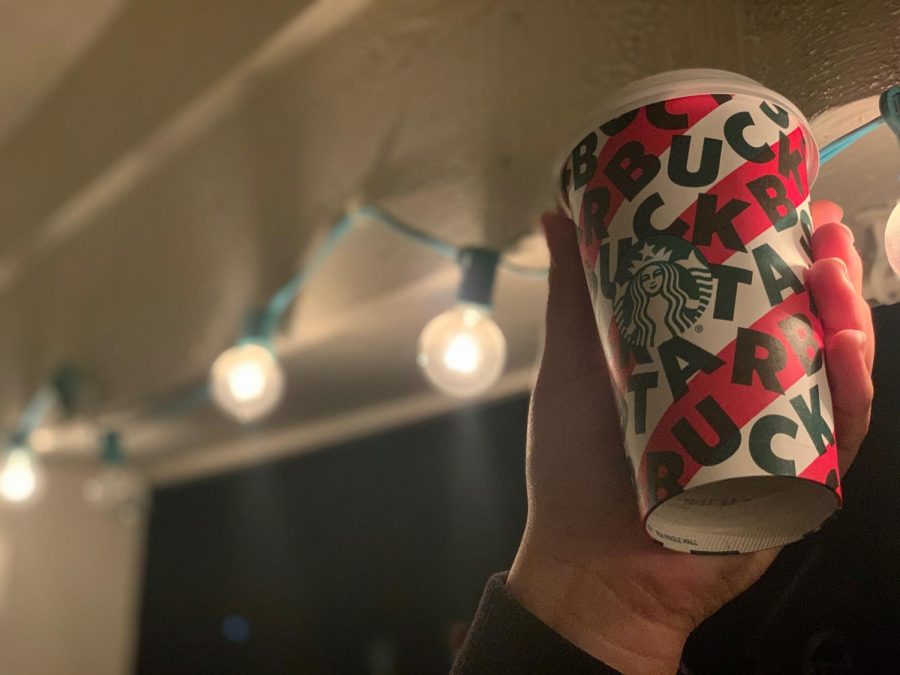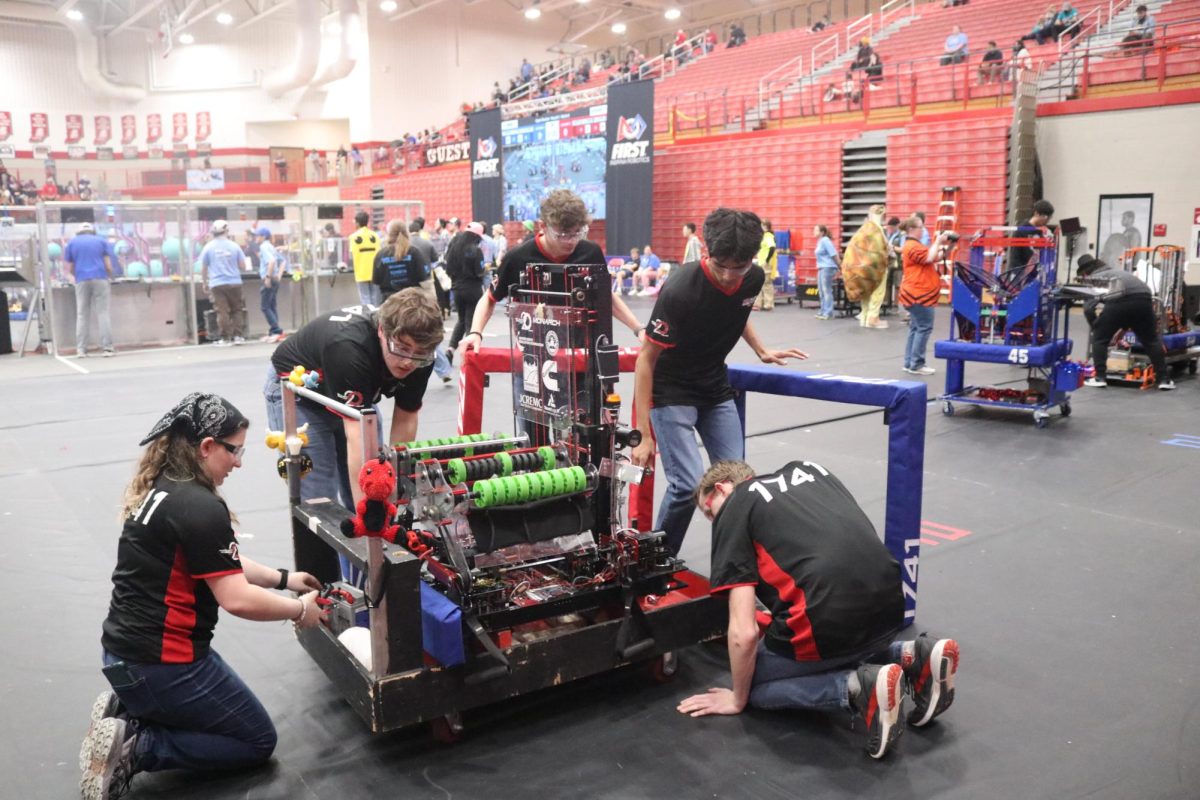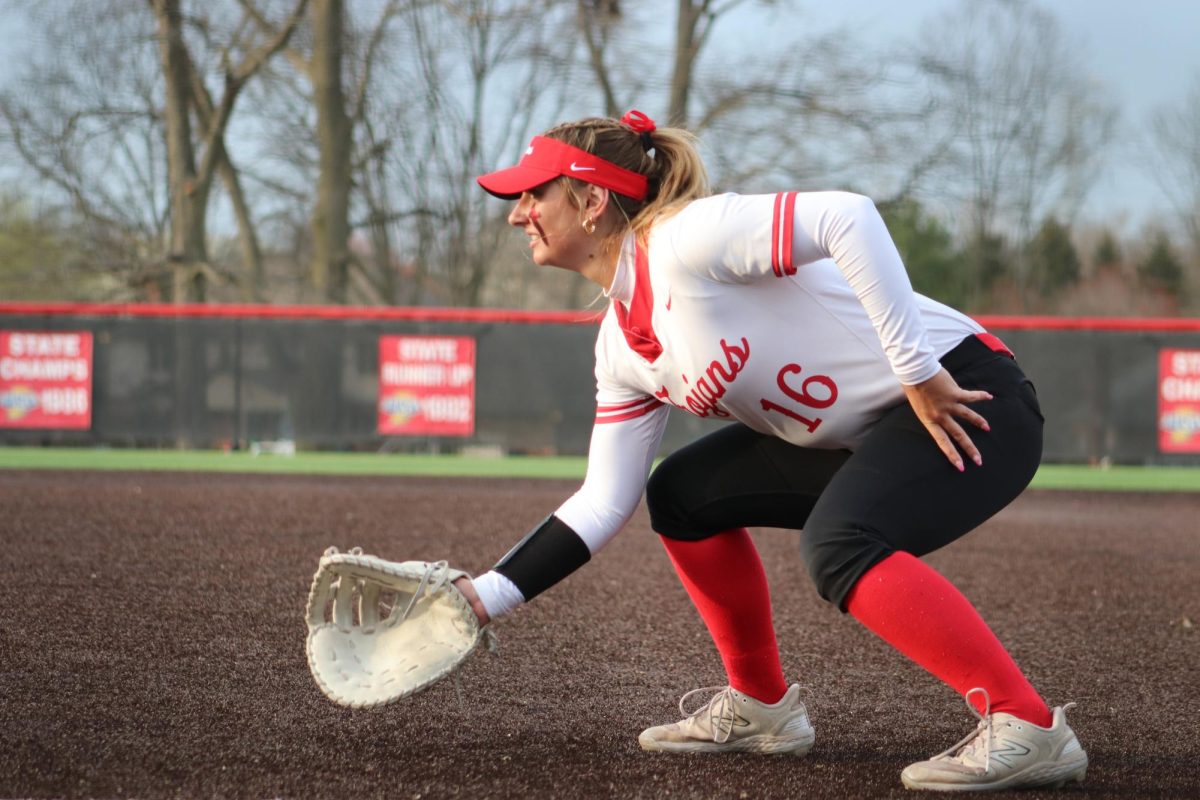No, The “War on Christmas” Isn’t Real
One of Starbucks’ 2019 holiday cup designs. The cup controversy started in 2015, but the brand faces yearly backlash for making plain holiday cups.
December 5, 2019
There has been an ongoing feud about whether Christmas celebrations should be implemented throughout American society. Companies and brands receive backlash whether they choose to participate in Christmas festivities or to not advocate for the holiday in general. Ultimately, whenever companies support any cause, there will be people who are displeased or offended because everyone has the right to their own opinion–no matter how hard they try, someone will be left unsatisfied.
After making traditional holiday cups for 18 years, Starbucks decided to do a simple solid red cup without any Christmas symbols because Starbucks’ audience is becoming increasingly diverse. An online evangelist, Joshua Feurstein, called out Starbucks for the cup, and struck back at what he thought to be Starbucks’ “War on Christmas.” Donald Trump reinforced Feurstein’s argument, using the cups as an example of the supposed war.
The “War on Christmas” is “a battle that has supposedly been raging since the Puritans banned celebrations of the holiday in the 17th century, but it really took off in 2005 when Fox News promoted a book alleging what the New York Times describes as ‘liberal antagonism toward the holiday,” Rachel Sugar said in her article “How Starbucks’s annual holiday cup became a battleground for the heart and soul of America.”
The idea of the “War on Christmas” has taken things such as typical holiday phrases and the design on Starbucks cups and turned them into political statements. The “War on Christmas” has been made into something that sounds like an actual issue, but there is no “War on Christmas.” This “war” is not the problem, the problem is taking concepts that are not political, and making them just that–political.
“The ‘War on Christmas’ is largely made up. If someone wants to say ‘Happy Holidays,’ say ‘Happy Holidays.’ If you want to say ‘Merry Christmas,’ say ‘Merry Christmas.’ Merry Kwanzaa, Happy Hanukkah, it doesn’t matter. If you are offended by saying ‘Happy Holidays’ instead of ‘Merry Christmas,’ maybe it’s you, not them,” Current Events teacher David Ongley said.
Saying “Happy Holidays” is not an exclusive statement because it does not exclude Christmas. Instead, it includes the other celebrations that occur during the holiday season. And wishing a “Merry Christmas” is nothing more than a popular saying. It is not meant to disregard those who do not celebrate a certain holiday.
For some, Christmas is a religious holiday and a day to honor their faith. For others, Christmas is not religious at all; it is a day where they receive presents from Santa Claus if they have been good all year long. And for some people, Christmas holds little to no importance because they do not celebrate it.
Celebrations of Christmas are not political statements. Not everything is political. Not everything needs to be taken out of proportion and overanalyzed. Politicizing these issues makes people take sides, creating division and tension. It defies the point of holidays: to bring people together. The designs on cups and holiday greetings are not political. These things are exactly what they sound like; they are the designs on cups and holiday greetings. There is no need to take sides on whether people say “Happy Holidays” or “Merry Christmas” because the only thing this does is prevent anyone from being happy or merry.
The goal of the holiday season is to bring joy and peace, not controversy. This should be the goal all throughout the year, regardless of what holidays are being celebrated. Differences should be encouraged, no matter what they are. Controversy condemns diversity. Holidays are not about creating political controversy, they are about creating unity.
Regardless of whether a person celebrates Christmas or not, no one’s festivities should be put down because not everyone participates in them. Celebration of any holiday is not an act of war, it is a celebration of culture. So if people want to put up Christmas decorations, a Kinara, or a Menorah, they should be allowed to do so. The intentions behind these things are not to exclude, but to simply participate in holiday traditions.
There is no need to create political controversy because of holiday greetings or the design on a Starbucks cup. Rather than being offended by the design on a Starbucks cup, people should focus on whether or not they got the right drink. I mean, my God. It’s just a cup.















